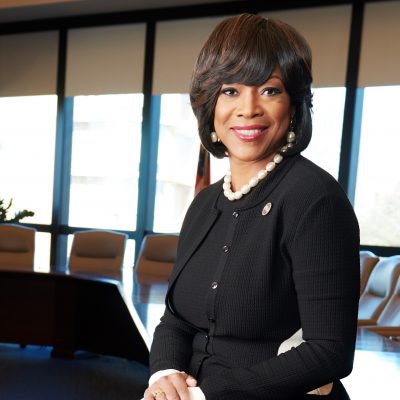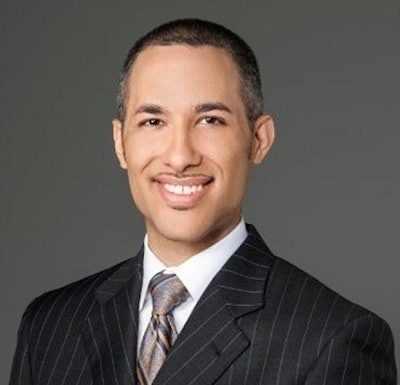Heading into fall, scientists estimate that COVID-19 has been with us for more than half a year. It’s still unclear, they say, when the virus began to infect people in the United States. But this is certain: the coronavirus has harmed Black and Latinx people at higher rates than other groups, according to emerging data. In communities across the country, Black and Latinx people have been three times as likely to become infected and nearly twice as likely to die from the virus as White people.
In response, the federal government, in June, appointed the historically Black Morehouse School of Medicine (MSM) in Atlanta to get at the root of this uneven toll. With a $40 million grant, it asked leaders at the medical school to mount a widespread, comprehensive fight against COVID-19 in communities that have been hardest hit. The work that MSM will do with the U.S. Department of Health and Human Services (HHS) Office of Minority Health over the next three years is historic and massive — and getting underway in the middle of the pandemic.
With the grant, the medical college will establish the National COVID-19 Resiliency Network to link vulnerable communities to COVID-19 services and to provide support they need to survive this pandemic or when another public health crisis hits. Dr. Dominic H. Mack, a professor and director of MSM’s National Center for Primary Care, and Daniel E. Dawes, director of the Satcher Health Leadership Institute, will co-lead the new network.
 Dr. Valerie Montgomery Rice
Dr. Valerie Montgomery Rice“This work will create the opportunity to measure the effectiveness of interventions being deployed to mitigate the impact of COVID-19. The results of which should lead to a newfound knowledge base to better prepare for and respond to future pandemics, especially in vulnerable communities,” said Dr. Valerie Montgomery Rice, president and dean of MSM.
The historically Black Meharry Medical College in Nashville, Tennessee competed for the same HHS grant, said Dr. James E.K. Hildreth, Meharry’s president and CEO.
“I’m just happy that it went to an HBCU, not to a majority institution,” Hildreth said. “Sometimes, with programs that have a focus on our populations, we don’t get to do the actual work.”
The country’s four Black medical schools, Hildreth added, already function as a consortium and will be among MSM’s partners on the new COVID-19 grant.
On the heels of the HHS grant came more than $2 million in funding and support from the CDC Foundation, an independent nonprofit created by Congress and from Google. This funding will go toward building a data tracking system they can use to respond to entrenched health inequities that COVID-19 has laid bare, said Dawes, who is also the principal investigator and lead for these two grants.Through those partnerships, the Satcher Institute will address the health equity implications of the COVID-19 pandemic and study the racial impact of the illness. Once completed, Dawes said anyone will have access to its new website and detailed demographic data.
“For us to truly overcome COVID-19 and future pandemics, we must understand how this pandemic impacts all populations as well as build strategies inclusive to all,” said Dr. Judy Monroe, CDC Foundation president and CEO.
Eager for MSM to embark on what he suggests will be a monumental, urgent and challenging undertaking over the next three years, Dawes is breathless with excitement about all that MSM and its legion of old and new partners are preparing to do to address health disparities and track the devastation COVID-19 continues to cause in vulnerable communities. Dawes spoke with Diverse about some of those plans and how other HBCUs can also benefit from MSM’s partnerships with Google and the CDC Foundation.
 Daniel E. Dawes
Daniel E. DawesDIVERSE: You said that data gathering and tracking of COVID-19’s impact on vulnerable communities will be central to the partnership work you will do with Google and the CDC Foundation. There are now several national COVID-19 data tracking systems out there, including those operated by Johns Hopkins University and The New York Times. How will yours differ?
Daniel Dawes: We will be doing what they are doing but at a much granular level. We will primarily be looking at health inequities within this pandemic and at chronic diseases to create the most comprehensive health equity tracking system in the United States. With CDC Foundation, we will be analyzing that data, creating tailored reports, and a comprehensive COVID-19 equity report based on our findings and best practices. We’ll also create state and county report cards to show progress in eliminating health inequities and how they are advancing health equity. We don’t think it’s enough to just put data on a website, collect it and analyze it. We want to do something meaningful with it.
DIVERSE: In addition to data tracking, how else do you plan to use the Google and CDC Foundation grants to address COVID-19?
DAWES: We will create a Black Health Equity Alliance to coordinate a response to health inequities, structural racism and COVID-19 with the nation’s Black leaders. We will also have a Health Equity Taskforce that is inclusive of all population groups.
DIVERSE: While public-private and other kinds of partnerships with HBCUs are not new, how can the scope of your work with Google and the CDC Foundation serve as a model for other HBCUs?
DAWES: I’ve spent more than two decades trying to advance and elevate health equity and tackle health disparities, but those efforts have often been ignored. What’s different now is that the pandemic has magnified those systemic health inequities and forced people to ask why and how. What’s happening is that people are now realizing the need to allow those who are closest to the pain or the problem to be the ones to take the lead on finding solutions.
There has long been an attitude of paternalism inside and outside of the academy about what HBCUs can and are capable of doing. I have found that offensive. I know that our HBCUs have incredible and brilliant scholars and researchers who have been in the trenches, fighting this great fight and blazing trails on issues of health equity. Today, folks are beginning to recognize that HBCUs are not secondary partners on projects, but are co-equals that have something to add when it comes to uplifting the health of racial and ethnic communities.
DIVERSE: How can HBCUs leverage these kinds of partnerships to advance their work and mission?
DAWES: As HBCUs, it’s important to first know your strengths, and then bring in partners that value the work that you are doing and can help you advance your agenda. A part of our work on these grants will be writing peer-reviewed journals that show how these partnership models worked for us. We want to provide insight into how we developed and implemented them and offer best practices so that other HBCUs can learn from our experience.
DIVERSE: Looking ahead to the end of the $40 million HHS grant, are you confident that your findings will lead to needed policy and system change?
DAWES: When you have data that shows that there is a problem, it means that you should probably do something about it and share it. If you don’t, it could imply that you’re trying to do harm. With that said, I think there is power in data, and, if used effectively and shared, it can move the needle toward health equity.
So, when we are done [with] our work [at MSM], I’m not expecting to see a complete or revolutionary transformation at the policy level. We know that it will take time. But at the local, state, and maybe at the federal level, I think we will see more changes than we ever have seen to achieve health equity.
This article originally appeared in the August 6, 2020 edition of Diverse. You can find it here.















